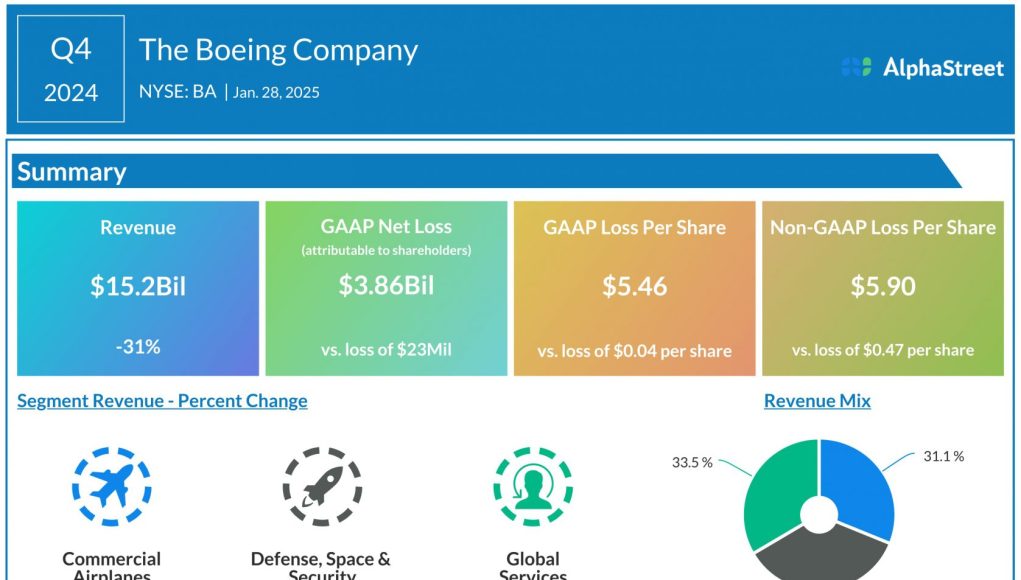The Boeing Company (NYSE: BA) ended the last fiscal year on a low note as it struggled to recover from the safety and quality-related setbacks from recent years. When the aircraft maker reports first-quarter results next week, its stakeholders will be watching to see if the management’s initiatives to improve operations are translating into meaningful stability.
The Stock
The stock has traded below its 52-week average value so far this month amid continuing volatility. The most recent closing price is near the levels seen six months ago, after witnessing a series of ups and downs during that period. However, BA probably has what it takes to overcome the challenges, given the company’s dominance in the commercial airplane market and healthy backlogs.
Boeing’s first-quarter 2025 report is slated for release on Wednesday, April 23, at 7:00 am ET. Estimates for the company’s performance in the early months of FY25 are mixed. Analysts following the business forecast a loss of $1.28 per share for the March quarter, excluding special items, compared to a loss per share of $1.13 in Q1 2024. Meanwhile, revenues are expected to grow around 20% year-over-year to $19.87 billion in the first quarter.
Weak Q4
In the final three months of fiscal 2024, Boeing’s revenue declined 31% annually to $15.2 billion. The top line was hurt by a sharp fall in sales in the commercial and defense segments, partially offset by growth in the global services division. The weak performance resulted in a wider loss of $5.90 per share in the December quarter compared to the previous year’s loss of $0.47 per share. The results fell short of expectations, marking the third miss in a row.
In his post-earnings interaction with analysts, Boeing CEO Kelly Ortberg said, “We’re working across the supply chain, including the sub-tiers, to ensure readiness and stability with our production rates. Notably, supplier part shortages across all of our commercial programs are within their established control limits. We have instituted dedicated sessions with suppliers to provide insights as well as to promote two-way communication to stay aligned as we operate together as one extended production system.”
Turbulence
In a sign that the company’s troubles are far from over, the Chinese government this week ordered domestic airline companies to halt taking delivery of Boeing aircraft and parts, even as the US-China trade war escalates. The company faces the risk of losing market share to rival Airbus due to widespread safety concerns and geopolitical headwinds. Boeing’s credibility has significantly suffered in the wake of the fatal crashes involving Boeing 737 MAX aircraft a few years ago.
Earlier this year, the Boeing leadership issued a positive outlook on the company’s cash position but expressed concerns about the continuing supply chain constraints. While ruling out any near-term impact from the new import tariffs, the management cautioned it may affect the business if the trade tensions persist.
On Wednesday, Boeing’s stock opened lower but gained momentum as the session progressed. The shares have lost about 11% since the beginning of 2025.








